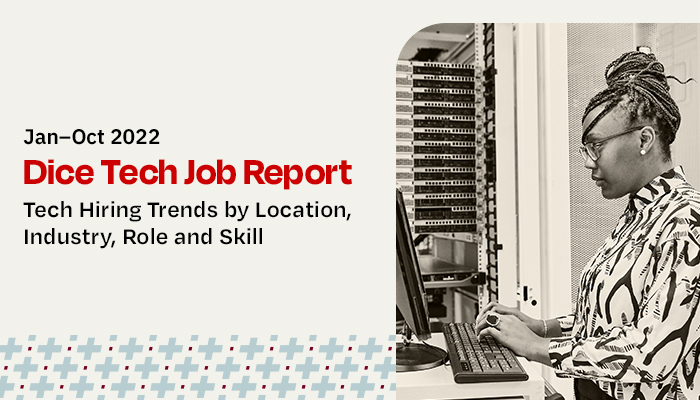The low unemployment rate for technologists has employers evaluating turnover data and revamping their hiring and interview processes. They’re trying to identify potential flight risks—employees who leave after only a few months in the role, either because it’s not a great fit or they’ve sensed a better opportunity somewhere else.
During these evaluations, employers might probe a job seeker’s motivation, commitment, career objectives, triggers, work preferences, expectations and cultural fit. To help you put your best foot forward during your next job interview, here are some questions you should anticipate and be prepared to answer.
“What is your ideal work environment?”
One of the primary causes of employee turnover is poor cultural fit. To assess a prospective employee’s cultural match, interviewers will ask you to describe the type of culture and work environment that motivates you, as well as the management style you prefer, explained Mike Poskey, president and CEO of ZERORISK HR.
Expect the interviewer to ask more “tricky” and detailed questions based on the information collected from other employees’ exit surveys. While these questions might seem annoying at first, they have a secret benefit, as they often provide a glimpse into the company’s real culture.
Since you no doubt want to work in a compatible work environment, it’s important to identify the cultural elements and priorities that are important to you. “Be able to articulate what a perfect work environment looks like and tastes like,” advised Matt Abbott, general manager of The Sourcery. Also, make sure to do your own research ahead of time so you can connect your needs to the company’s culture and ask thoughtful questions.
Word of caution: While many tech workers are looking for flexibility, remember that flexibility is a two-way street, Poskey says. For example, while you might want to work remotely full-time, with a totally flexible schedule, you might consider meeting the company halfway by agreeing to hybrid work and a pre-set schedule. By signaling your willingness to help the company meet its objectives and cultural needs, you improve your chances of landing the job.
Find out which industries currently have the highest demand for tech professionals like you in Dice's latest Tech Job Report.
“Why did you leave your last job?”
If you have a track record of leaving jobs within a year, numerous employment gaps on your resume, or quit your last job without another lined up, expect the interviewer to dig deep to see if you lack commitment.
Provide a brief, acceptable reason for leaving, such as wanting more upward mobility, a more inclusive culture, or the chance to work on projects using innovative technology. Then pivot to what you’re looking for in your new role.
It’s also acceptable to explain that you’ve been evolving as a professional and have learned what you want through trial-and-error, Poskey noted. Just make sure to follow up by stating your priorities and goals.
“Why do you want to work for this company?”
Gallup research found employees who are "engaged and thriving" are 59 percent less likely to look for a job with a different organization in the next 12 months. In light of that, expect interviewers to probe what you know about the company and its mission, and whether you truly understand the role and are passionate and committed to the work.
They may also ask things like:
- “What aspects of the role do you think you’ll like and dislike?”
- “If we offer you the job, how long do you think you’ll stay?”
- “Why do you think this job would be different/better than your current job?”
- “Where else are your interviewing?
- “What do you think about our competitors?”
- “Can you tell me about a time when you failed to honor a commitment you made?”
Before heading into the interview, prepare answers that address these lines of inquiry. Being unprepared or offering generic answers shows a lack of interest in the role and poor motivation. Show enthusiasm by researching the company, asking insightful questions and, most importantly, explaining how you can help the company succeed.
“Describe a stressful situation and how you handled it.”
Employers want to determine how you’ll handle challenging situations that come with the job, and whether you can deal with pressure, tight deadlines, and big projects. They may also ask more specific questions like:
- “How would you handle undeserved criticism from a superior?”
- “How would you handle a co-worker taking credit for your work?”
- “What did you do when you worked for a boss you didn’t get along with?”
Provide an example of how you’ve handled a stressful situation in the past, describe your coping techniques, and highlight the soft skills you developed and things you’ve learned by working under pressure (like how to confront a co-worker, negotiate requirements, prioritize tasks and manage deadlines).
“What are your immediate career goals?”
Interviewers want to gain insight into your aspirations and goals to see if they are reasonable and achievable, and whether you are likely to stay and grow with the company (at least for a while) or seek greener pastures.
Make your answer truthful, but general enough that it doesn’t raise doubts about whether you would be a good fit. Focus on the things and technology you’d like to learn, the experience you’d like to gain, and the activities and projects you’d like to engage in rather than a specific role or job title.
Sign Up Today
Want more great insights? Create a Dice profile today to receive the weekly Dice Advisor newsletter, packed with everything you need to boost your career in tech. Register now

